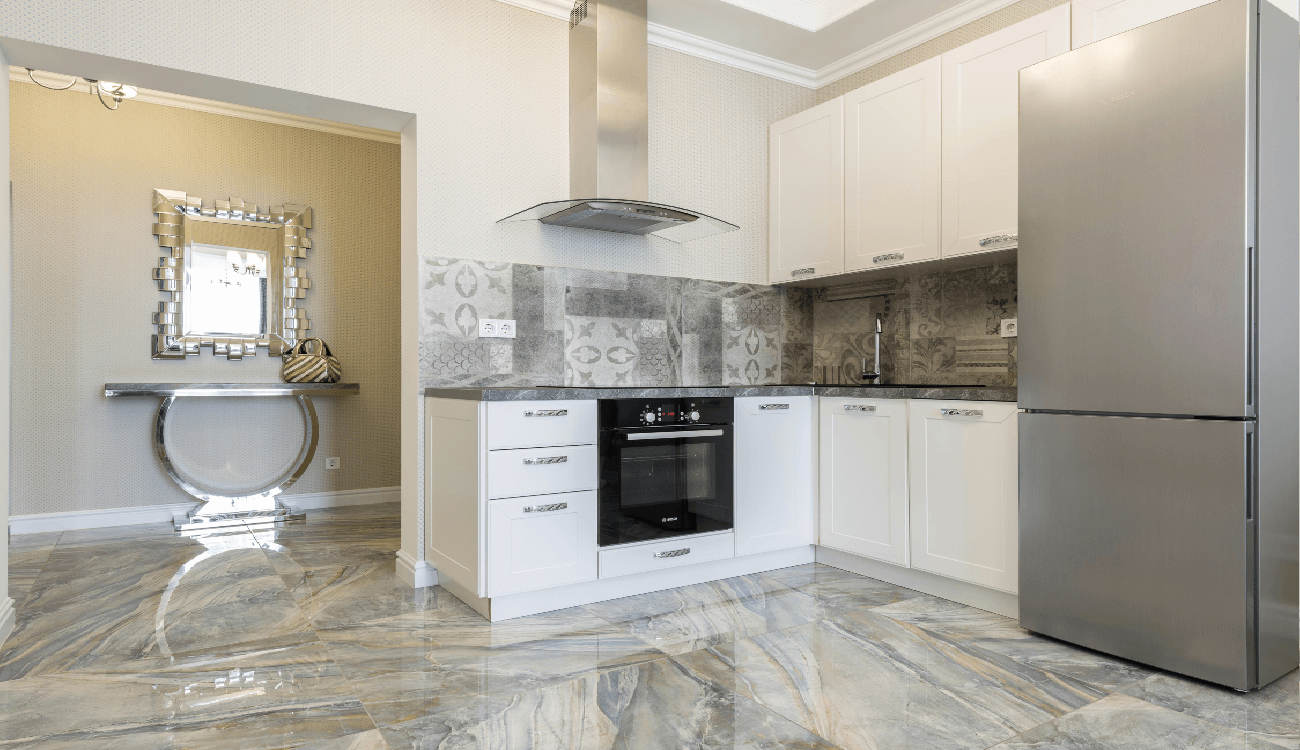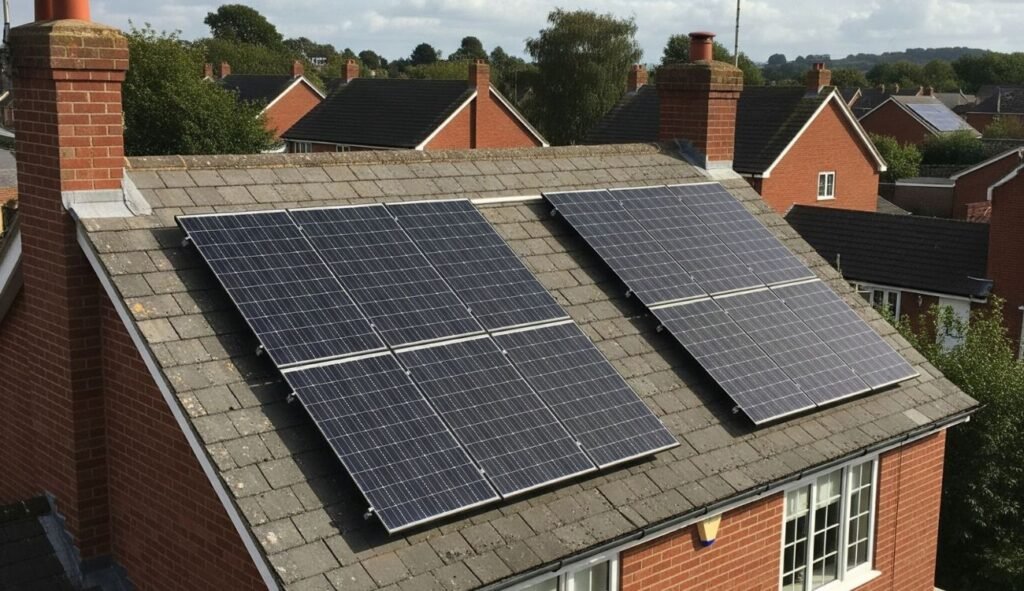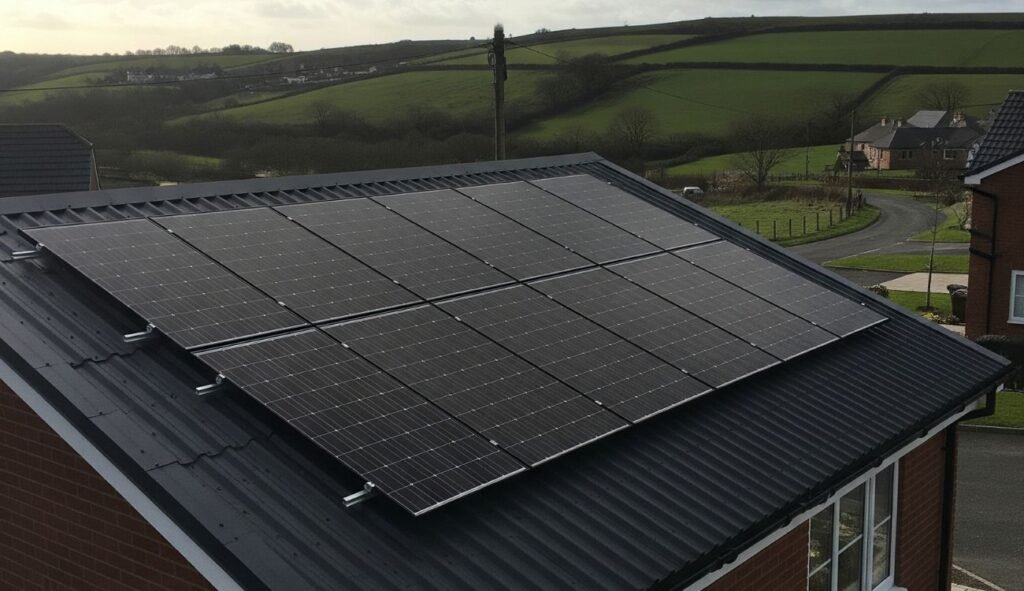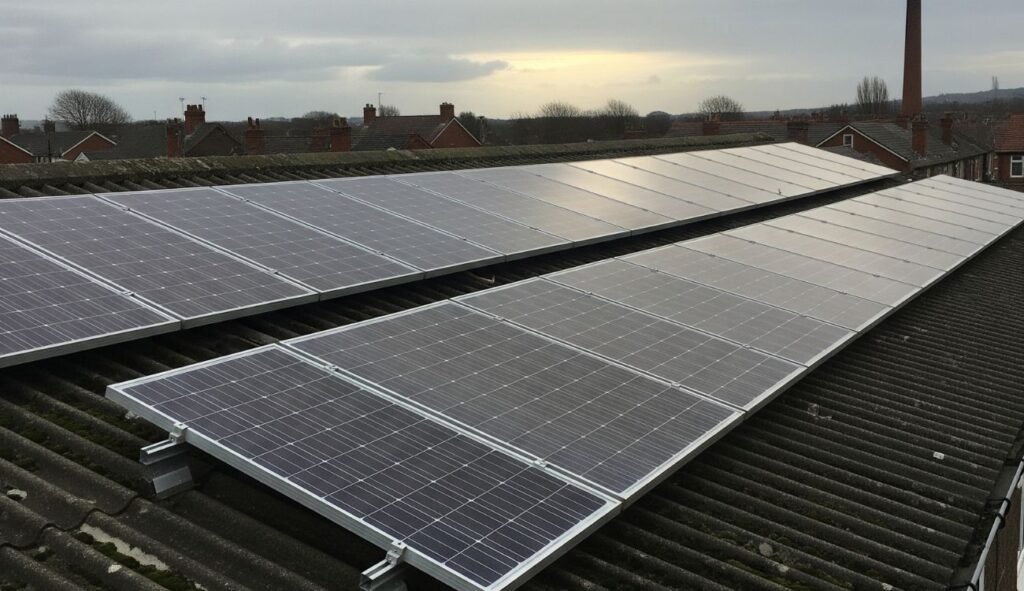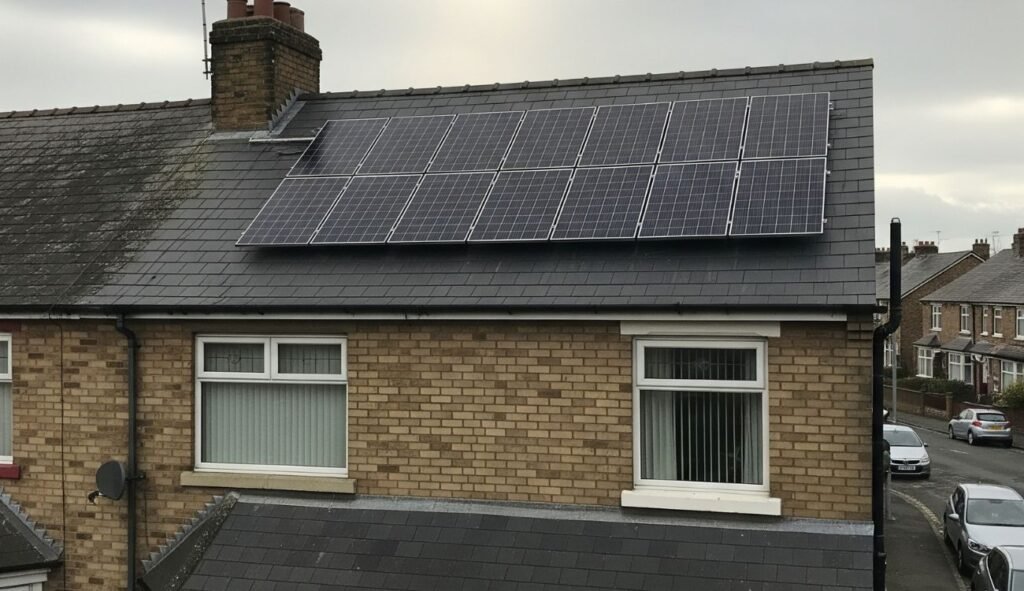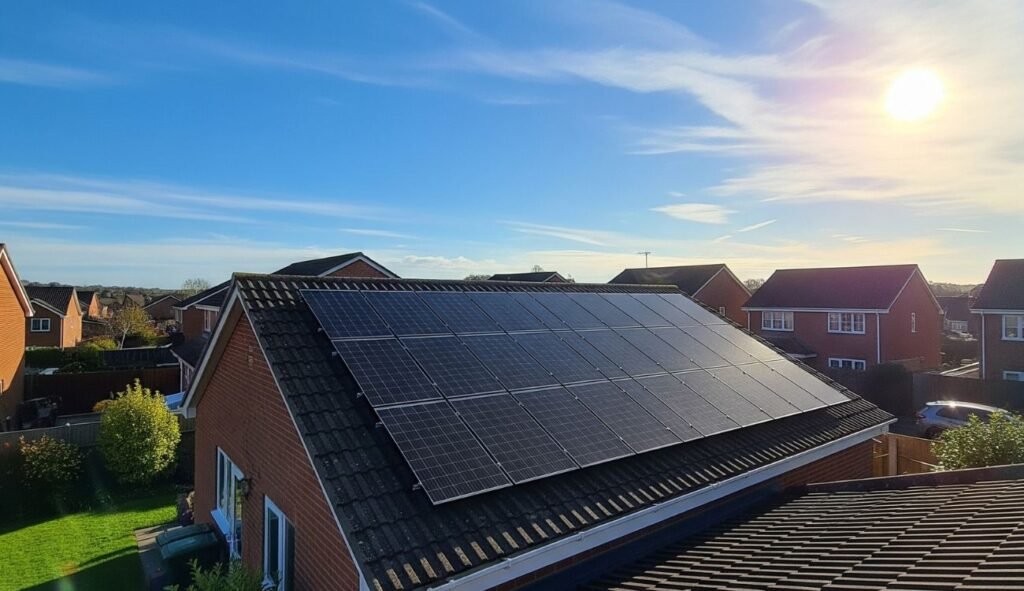When considering the shift to solar energy, many UK homeowners and landlords often start small, wondering how feasible it is to power everyday appliances like a refrigerator using solar panels.
Understanding how many solar panels are needed to power a refrigerator can give you insight into how solar might fit into your energy-saving goals and future-proof your home.
How Many Solar Panels Do You Need to Run a Refrigerator?
For most average-sized UK fridges, 1–3 solar panels (300–400W each) are usually enough to power the appliance throughout the year. But let’s break this down properly
The number of solar panels required to power a refrigerator depends on several variables including the fridge’s energy usage, solar panel wattage, and how much sunlight your panels receive in your location (known as solar irradiance)
How do you calculate the solar panel requirements for a fridge?
Determining solar panel requirements begins with understanding how much electricity your refrigerator consumes.
Most modern household fridges in the UK use between 100 to 800 kilowatt-hours (kWh) annually, depending on size and energy rating.
To calculate the number of panels needed:
- Find your fridge’s power consumption in kWh/year.
- Calculate your region’s solar production, which across the UK typically ranges from 850 to 1,200 kWh per kW installed annually, depending on local sunlight levels.
- Divide the fridge’s annual consumption by the estimated kWh generated per solar panel.
This gives a rough estimate. For a more tailored answer, it’s best to request a custom quote from Future Heat, which offers expert solar panel installations in Tyne and Wear, Newcastle, and the wider North East of England.
Request your free solar panel installation quote today.
How many solar panels do you need for different refrigerator sizes?
The number of solar panels required varies based on fridge size, usage frequency, and efficiency rating. Here’s a helpful breakdown:
| Fridge Type | Average Power Usage (kWh/year) | Watts/Day | Panels Needed* |
|---|---|---|---|
| Mini Fridge (Under Counter) | 100–200 | ~300–600W | 1 – 2 |
| Small Single Door Fridge | 200–300 | ~600–900W | 1 |
| Medium Fridge-Freezer Combo | 300–500 | ~900–1,400W | 1 |
| Large American Fridge | 600–800 | ~1,800–2,400W | 2 – 3 |
| Two Fridges in One Property | 800–1,200 | ~2,400–3,600W | 3 – 4 |
Assuming 1 solar panel produces 1.1kWh per day in the North East UK.
Many UK households opt for medium or large fridge-freezers, which typically require 1–3 solar panels depending on overall usage.
What factors determine how many solar panels you’ll need?
- Fridge size and energy efficiency
Not all refrigerators are created equal. The larger and older the fridge, the more energy it consumes.
- Solar panel output & orientation
Panel output can vary based on:
- Orientation (horizontal vs vertical solar panel installation can impact efficiency)
- Panel efficiency
- Location (e.g., Tyne and Wear gets slightly less annual sun exposure than southern England)
- Shading from trees or buildings
If you’re unsure how many solar panels can fit on your roof, you may want to assess your available roof space before making a final decision.
- Daily vs yearly energy use
If you’re powering your fridge off-grid, you’ll need a solar battery. To learn more about battery sizing, check our guide on what size solar battery I need.
Can One Solar Panel Really Run a Fridge All Year in the UK?
In ideal conditions, yes. One high-efficiency 400W panel could potentially generate up to 350–450 kWh per year, enough to power a single fridge.
However, real-world conditions like UK weather, winter daylight hours, and panel degradation must be factored in.
That’s why many people opt for at least two-three panels to ensure consistent power even in the darker months. Do solar panels work in winter? They do, but not at full capacity, which is why extra generation capacity helps.
Should You Install Solar Panels Just for Your Fridge?
You could, but most homeowners take it a step further. Solar panels can also power washing machines, lighting, TVs, and even heating if paired with efficient systems.
Curious about what appliances can be powered by solar panels? Spoiler: Quite a few!
Solar’s growing popularity has homeowners asking all sorts of questions, from how many solar panels needed to run a hot tub to how many solar panels needed to heat a swimming pool.
This means people are increasingly viewing solar as a whole-home solution.
If you’re wondering when is the best time to install solar panels, the answer is simple: the sooner the better.
With rising energy prices and falling solar installation costs, the investment case for solar has never been stronger.
Can Future Heat Help You Get Started with Solar?
Absolutely. If you’re based in Tyne and Wear, Newcastle or the wider North East, Future Heat offers expert solar panel installation tailored to your home and energy needs.
Whether you’re powering a single fridge or a full suite of home appliances, our team ensures maximum efficiency and ROI.
Get a personalised solar panel installation quote from Future Heat and start your solar journey today. It’s quick, obligation-free, and could save you hundreds on your yearly energy bills.
Some homeowners wonder if they can do it alone. While you can install solar panels yourself in certain cases, we strongly recommend using a certified professional.
Solar installations must meet strict standards (like MCS certification) to qualify for UK government incentives. You’ll also want to ensure system safety, especially when integrating with your home’s wiring.
Knowing how to choose a solar panel installer can help you avoid common pitfalls and guarantee long-term performance.
Frequently Asked Questions (FAQs)
Only if your solar system is equipped with battery storage or an off-grid inverter. Without these, most solar installations shut down during outages for safety reasons.
In most cases, no. Solar panels fall under permitted development. However, restrictions may apply in conservation areas or on listed buildings. Always check with your local council before proceeding.
Energy ratings give a useful estimate, but actual consumption can vary. It’s best to check the appliance’s specific kWh/year figure listed on the label or manufacturer’s site for accurate solar planning.
A 100-watt panel alone is not enough to power a standard UK refrigerator continuously. Most fridges need at least 300–600 watts/day. You’d need 2–3 panels of that size with battery support.
BSmart fridges often use less energy due to optimised cooling cycles and improved energy ratings, making them better suited for solar setups.
Our Verdict
Powering a refrigerator with solar panels in the UK is entirely feasible and increasingly popular among eco-conscious homeowners and landlords. For most fridges, 1–2 solar panels are sufficient, depending on size, usage, and your home’s solar potential.
That said, solar energy shines brightest when viewed as a comprehensive energy solution. From choosing the right orientation to understanding how many panels you can fit on your roof, there’s a lot to consider.
Jamie Maguire is Managing Director at Future Heat Ltd, the UK-based renewable energy company specialising in heat pumps, solar panels and energy-efficient boiler solutions. He leads the company’s strategic vision to decarbonise homes and businesses across the UK by delivering innovative, sustainable heating and power systems. Jamie is passionate about shaping the future of energy, supporting communities and empowering teams of skilled engineers to deliver lasting value and carbon reductions nationwide.

